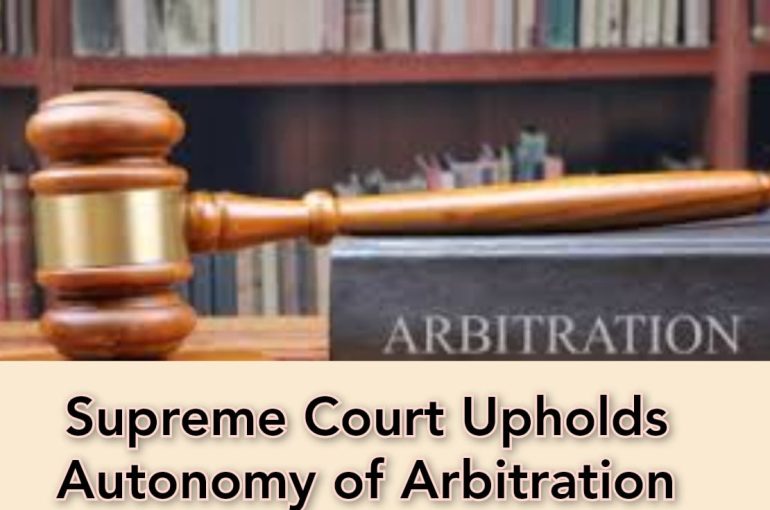Supreme Court Upholds Autonomy of Arbitration
Introduction
The Supreme Court of India (Division Bench) in the case of Punjab State Civil Supplies Corporation Limited & Anr. v. M/s Sanman Rice Mills & Ors. SLP (C) No. 27699 of 2018) decided on September 27, 2024, reaffirmed the sanctity of arbitral awards and the limited scope of judicial intervention as outlined in the Arbitration and Conciliation Act, 1996 (Arbitration Act). This ruling highlights the delicate balance between the autonomy of arbitration and the judiciary’s role in overseeing this alternative dispute resolution mechanism.
Background of the Case
The dispute originated from an Agreement dated October 6, 2008, between the Punjab State Civil Supplies Corporation Limited (referred to as “the Corporation”) and M/s Sanman Rice Mills (referred to as “the Rice Mill”). Under the terms of the Agreement, the Corporation supplied a substantial quantity of paddy to the Rice Mill for milling, with the expectation that the resultant rice would be returned to the Corporation. However, the Rice Mill fell short in its delivery, resulting in a significant deficit of approximately Rs. 7,16,15,716.
Despite partial payments, a balance of Rs. 2,16,15,716 remained unresolved, leading the Corporation to initiate arbitration proceedings. On November 8, 2012, the Arbitrator awarded the Corporation Rs. 2,67,66,804 along with interest. The Rice Mill contested this Award under Section 34 of the Arbitration Act, but the Additional District Judge upheld it on April 7, 2015.
Unwilling to accept this decision, the Rice Mill appealed to the High Court under Section 37. In a surprising turn of events, the High Court set aside both the Arbitral Award and the Order of the Additional District Judge, prompting the Corporation to challenge this ruling before the Supreme Court.
Legal Framework and Points of Determination
The crux of the matter before the Supreme Court centered on the extent of the appellate court’s powers under Section 37 of the Arbitration Act. The Court elucidated that judicial intervention in arbitration matters is inherently limited, primarily to the specific grounds set forth in Section 34. This section restricts interference to situations where the award contradicts public policy, involves fraud or corruption, or is patently illegal.
Key principles highlighted by the Court include:
- Limited Judicial Intervention: The Act aims to minimize court involvement in arbitration, allowing for expedited resolutions to disputes.
- Scope of Appeal under Section 37: This section does not permit a de novo review of the merits of the case; it is confined to assessing whether the lower court acted within its jurisdiction as prescribed under Section 34.
- Respect for Arbitral Awards: An arbitral award should not be set aside simply because an alternative interpretation exists; the arbitrator’s findings are to be respected unless clear grounds for interference are established.
In its ruling, the Supreme Court held that the High Court had erred in invalidating the arbitral award. The Court found that the award was reasonable and grounded in the evidence presented, without any violation of public policy or fundamental legal principles. It underlined that mere dissatisfaction with the award or the preference for an alternative view does not justify judicial interference.
The judgment reinforces the principle that arbitration should serve as a viable alternative to litigation, preserving the parties autonomy to resolve disputes with minimal judicial oversight.
Conclusion
The Supreme Court’s ruling in this present case stands as a crucial reaffirmation of the integrity of arbitral awards and the limited scope of judicial intervention under the Arbitration Act. This decision emphasises the importance of adhering to established legal principles governing arbitration, thereby ensuring that this mechanism remains efficient and respected.
As arbitration continues to be favoured for its speed and efficacy, this judgement serves as a significant step in safeguarding the efficiency of the arbitration framework in India. The Court’s delineation of judicial boundaries will undoubtedly serve as a reference point for future disputes involving the interpretation and enforcement of arbitral awards.
Shikha
Associate
The Indian Lawyer & Allied Services





































Leave a Reply